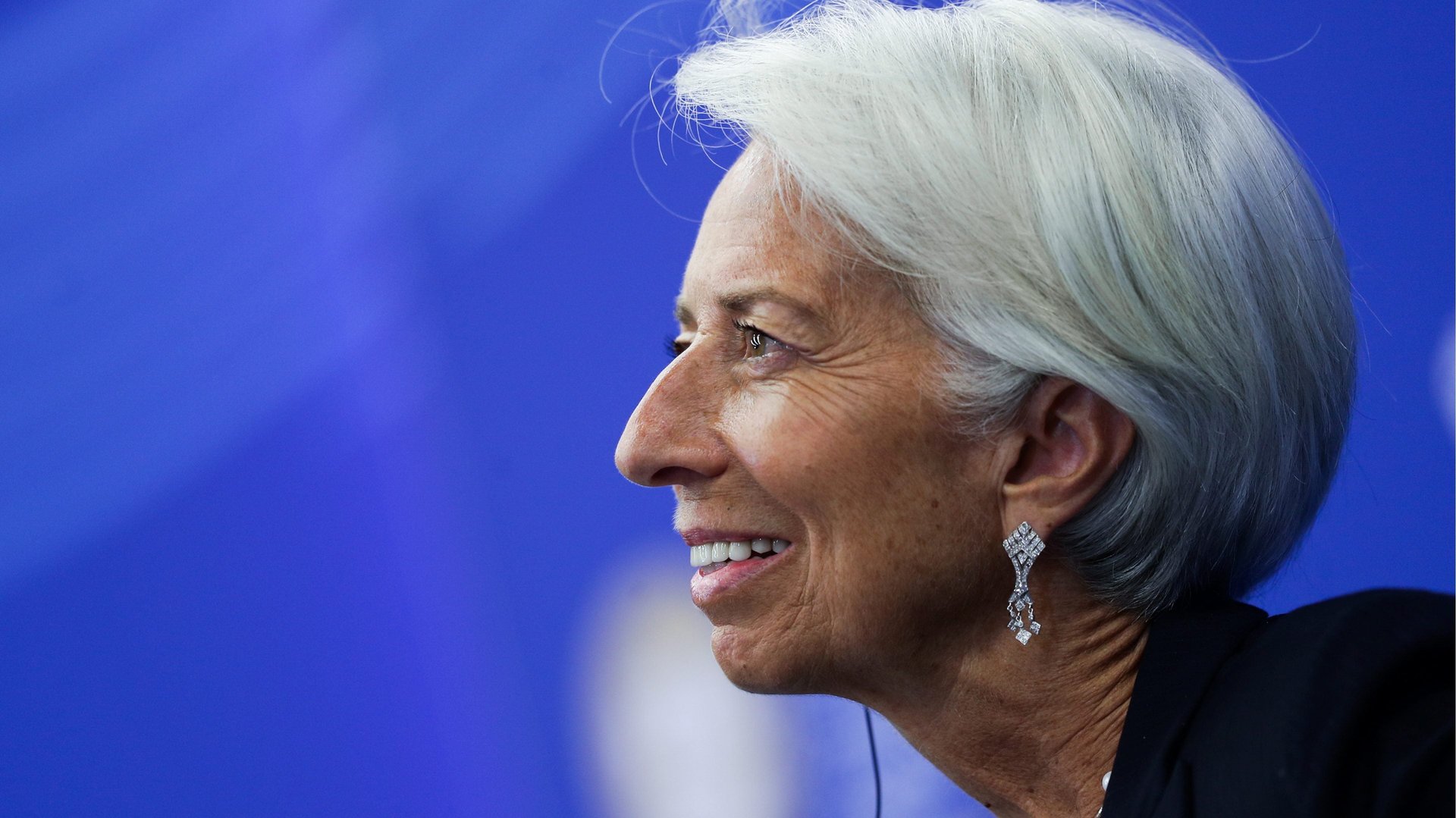Christine Lagarde says women should use the “glass cliff” to their advantage
Christine Lagarde is getting ready for what is arguably the biggest challenge of a stellar career.


Christine Lagarde is getting ready for what is arguably the biggest challenge of a stellar career.
A French lawyer who has run the International Monetary Fund for eight years, Lagarde was this week nominated by the European Council to become the next president of the European Central Bank (ECB), which runs monetary policy for the euro zone. If her nomination is confirmed, the 63-year-old will be the first woman to hold the position in its 20-year history.
Women are often hired to leadership positions when an organization is in crisis, a phenomenon documented by academics and now widely recognized, dubbed the “glass cliff.” Theresa May is perhaps the most recent example on the world stage, having taken up the role of UK prime minister in the messy aftermath of the 2016 Brexit referendum. May struggled for years against almost impossible headwinds until finally, last month, she admitted defeat and resigned.
Lagarde’s new appointment is not necessarily a “glass cliff” moment. But her advice, gleaned from a long management career, is that women shouldn’t shy away from those types of challenges. Instead, in an interview with Quartz (member exclusive), she suggests they see them as ways to have a real impact.
“When the situation is difficult, when it’s really challenging, when the financial situation is really poor, when budgets have been blown, then there are opportunities for women,” she told Quartz editor-in-chief Kevin Delaney. “I’ve always encouraged women to actually say yes in those situations.” That’s in part, Lagarde argues, because the risk is limited when a crisis is already in progress. It’s also because male candidates might be less willing to accept the challenge for fear that they might be “compromised” by it, and not “associated with success,” she said. That Boris Johnson, a vociferous campaigner for Brexit, faded into the background and waited until people were desperate before deciding to wage a leadership campaign (paywall) for UK prime minister seems like a potent example of Lagarde’s theory.
“I have noticed, time and again, that when it’s bad, you call women to the rescue. Or as a former central bank governor said to me… ‘The men go to war, and the women pick up the pieces,'” Lagarde added.
Lagarde also said that she wasn’t advising women serve only an interim role. When a company (or in her case, a continent) needs strong ongoing leadership “you have to grit your teeth, smile, and continue the job, and not just pick up the pieces and then hand over” to a male leader, she said.
The ECB is not in crisis, but Lagarde would be taking over at a time of great complexity. The 19-member currency union is preparing for the fallout from Brexit on the one hand and a debt-ridden Italy looking for support on the other. Those short-term issues have been compounded by slowing growth in the region, global uncertainty, and the escalating risk of a trade war with the US. One of her first actions at the ECB may be to reboot the trillion-euro emergency stimulus measures introduced during the depths of the financial crisis.
Once confirmed, Lagarde would succeed Mario Draghi, an Italian economist who has run the ECB for eight years, and whose term ends on October 31. In an interview which touched on leadership techniques, her early love of fiction, and what synchronized swimming taught about management, Lagarde also noted that, in her opinion, the environmental crisis is the biggest challenge facing capitalism today.